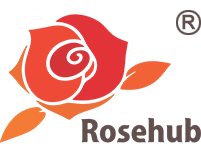(TIME:Global Health Hero, 2005)
has delivered the 25th Institute Lecture of Indian Institute of Technology (BHU)
&
the Third pre-fest Think Talk of Technex '17
Lecture Title: From Sevagram to Shodhagram: In search of Health
Watch Previous Lecture on Institute Lecture Series IIT(BHU): सहजता और मौलिकता | Simplicity and Originality | a Lecture by Pawan Gupta at IIT-BHU | Hindi
About Dr. Abhay Bang
 |
| Dr. Abhay Bang with Prof. Rajeev Sangal, Director IIT(BHU) |
Dr. Abhay Bang (MD, MPH, D. Sc (Hon.) D. Lit (Hon.) ) is Director, SEARCH (Society for Education, Action and Research in Community Health), at Gadchiroli. Dr. Bang grew up in the Sevagram Ashram of Mahatma Gandhi. He was inspired by the social ideals, and trained in India (MD) and at the Johns Hopkins School of Public Health, (MPH). He was a top notcher in the University and won 3 Gold Medals. Along with his wife Dr. Rani Bang, he founded the voluntary organistion, SEARCH, (Society for Education, Action and Research in Community Health) 30 years ago in one of the most underdeveloped districts, Gadchiroli, in the state of Maharashtra in India, where they have been working with the people in 150 villages to provide community-based health care and conduct research. They have developed village health care program which has now become a nationally and internationally famous model. It has influenced the health policy in India and globally at least thrice. They first brought to the notice of the world that rural women had a large hidden burden of gynecological diseases. He showed how the pneumonia in children can be managed in villages, and recently, how newborn care can be delivered in villages. Their work has reduced the IMR to 30 in this area. This approach, called the ‘Home-based newborn care’ has been now replicated in several countries, has become a national policy in India, and resulted in the global guidelines (WHO/UNICEF – 2009). They have established the famous community health care and research center ‘Shodhagram’ in the tribal area. They also studied the problem of hidden child mortality in Maharashtra and subsequently launched a programme – Ankur – to reduce child mortality in the State. They have led a compaign against alcohol which led to introduction of prohibition in Gadchiroli district, and influenced the State policy. Recently, he has led a series of studies on tobacco consumption in Gadchiroli, and how to control it in women and children. He has written 2 books of which the one on his ow
n heart disease is extremely popular in Maharashtra. It has received the State literary award. He was a member of the High Level Expert Group to design Universal Health Coverage for India (2010-12), of the National Commission on Population, and of The National Commission on Macro-economics and Health. He was a member of the Mission Steering Group, of the National Rural Health Mission, Govt. of India, and of the National ASHA Mentoring Group, and several national and international committees. He is a member of the Audit Advisory Board of the CAG, India. He was a member of the High Level Committee on Tribal People in India, appointed by the Prime Ministers Office.
He is currently the chairman of the Expert Committee on Tribal Health, Govt. of India. He is a member of the Central Health Council, the apex body of the MOH & FW, Govt. of India.
He and Rani were honoured with the highest honour of the state government ‘Maharashtra Bhushan’. The TIME magazine selected him and Rani as the `Global Health Heros’ (2005).
tags: Institute Lecture Series IIT(BHU), rosehubTV, SEARCH,









0 comments:
Post a Comment